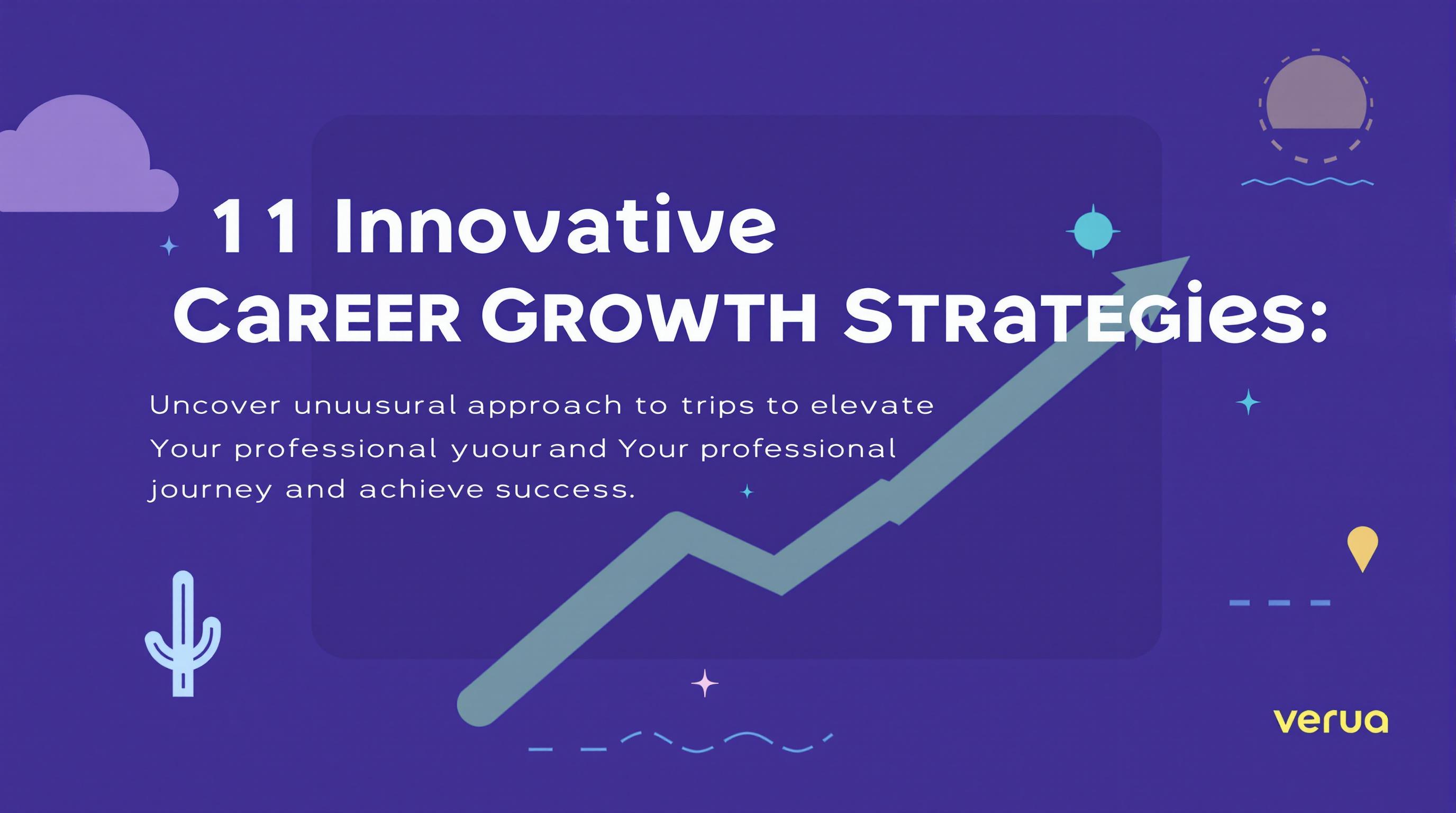Related Articles
- Navigating the Talent Labyrinth: How Emotional Intelligence Is Shaping New Hiring Practices in Unseen Markets
- Behind the Scenes: How Automating HR Processes Is Redefining the Future of Recruitment and Job-Seeking Strategies
- Beneath the Surface: Unveiling the Surprising Role of Environmental Sustainability in Shaping Future Careers
- Exploring the Quirky Side of Remote Work: How Hobbies Are Fueling Professional Success in Unexpected Ways
- How the Remote Revolution is Inspiring Unlikely Friendships Across Continents: A Study of Global Connectedness
- The Unforeseen Bond: How Virtual Coworking Spaces Foster Unexpected Connections Amidst Remote Work
7 Unconventional Career Growth Insights: Strategies to Navigate Unique Paths and Cultivate Lasting Professional Impact
7 Unconventional Career Growth Insights: Strategies to Navigate Unique Paths and Cultivate Lasting Professional Impact
7 Unconventional Career Growth Insights: Strategies to Navigate Unique Paths and Cultivate Lasting Professional Impact
1. Embrace the Power of Storytelling
Storytelling is a potent tool for career growth, often overlooked in traditional professional development. By mastering the art of narrative, professionals can engage others more effectively, communicate their value, and inspire change within their organizations. Crafting a compelling personal story can help you stand out in interviews or networking events.
Moreover, storytelling allows professionals to connect on an emotional level. Sharing personal experiences and lessons learned can humanize one's resume and create a bond with colleagues or clients. Consider incorporating storytelling techniques into your presentations or pitches to capture attention and convey information dynamically.
According to research from the Harvard Business Review, storytelling can significantly enhance the retention of information and influence decision-making processes (HBR, 2016). By utilizing storytelling in your career, you not only entertain but also leave a lasting impact on your audience.
2. Seek Mentorship Beyond Traditional Boundaries
While conventional mentorship often entails established professionals guiding novices, unconventional mentorship transcends formalities. Look for mentors in varying industries, backgrounds, or even age groups. Diverse insights can provide fresh perspectives that enrich your professional approach.
Networking at community events or workshops can uncover unexpected mentorship opportunities. The wisdom of individuals with non-traditional career trajectories can offer valuable lessons that shape your career in unexpected ways. Don't hesitate to reach out, as most people are eager to share their experiences and knowledge.
A survey by LinkedIn found that 81% of professionals believe having a mentor is a crucial career need (LinkedIn, 2023). By embracing mentorship from diverse sources, you can cultivate an adaptive mindset that drives growth and resilience in your career.
3. Collaborate with Unexpected Allies
Expanding your network to include individuals from different departments, industries, or functions can lead to innovative collaborations. Cross-functional teamwork not only sparks creativity but also opens doors to uncharted career pathways. Seek out characters who challenge your thinking and provide alternative solutions.
Engaging with people who bring varied skills fosters a culture of innovation. For instance, partnering with those from creative fields can enhance the way messages are communicated, thereby improving your effectiveness in various projects. Look beyond your comfort zone and foster an environment of collaboration that empowers all involved.
The Stanford Graduate School of Business highlights that diverse teams are 35% more likely to outperform homogeneous teams (SGI, 2021). By fostering cross-disciplinary collaborations, you can carve out a unique niche that positions you as a forward-thinking professional.
4. Harness the Potential of Online Learning
With technological advancements, online learning has transformed how professionals develop their skills. Embrace self-directed learning through platforms like Coursera or LinkedIn Learning, where you can gain expertise in niche areas that complement your career goals. This flexibility allows for tailored skill acquisition at your own pace.
Additionally, online communities often provide platforms for discussion and support. Engaging with professionals worldwide about your learning experiences can yield insights that are often limited within local settings. Sharing knowledge reinforces learning and can even lead to collaborative projects.
A report from the World Economic Forum emphasizes that continuous learning is paramount to staying relevant in an evolving workforce (WEF, 2020). By leveraging online resources strategically, you can stay ahead of industry trends and equip yourself for future challenges.
5. Cultivate a Personal Brand
In today's digital age, having a personal brand is essential for professional success. Your brand reflects your values, skills, and the unique perspective you bring to your field. Cultivating an authentic online presence through platforms like LinkedIn or personal blogs allows you to share your insights and establish credibility.
Additionally, a well-defined personal brand can create opportunities that may not arise through traditional job applications. Networking becomes easier as people recognize your expertise and associate your name with specific skills or industry knowledge. Align your online activities with your career goals to create a coherent message.
In a study by CareerBuilder, 70% of employers use social media to screen candidates (CareerBuilder, 2018). Therefore, focusing on building your personal brand can greatly influence your career prospects and shape how others perceive you professionally.
6. Prioritize Emotional Intelligence
In a world that increasingly values collaboration and connection, emotional intelligence (EI) is a pivotal skill for success. Being aware of your emotions and understanding how they influence your interactions with others can greatly enhance your professional relationships. Cultivating EI enables you to lead effectively and navigate workplace dynamics.
Many organizations now prioritize EI during hiring processes. Possessing high emotional intelligence fosters resilience and adaptability in the face of challenges, making you more valuable in a rapidly changing work environment. Investing time in developing EI skills can significantly impact your career trajectory.
Research from TalentSmart shows that EQ (emotional quotient) accounts for 58% of job performance across various sectors (TalentSmart, 2017). Prioritizing emotional intelligence establishes a strong foundation for building impactful professional relationships and advancing your career.
7. Redefine Failure as a Learning Opportunity
Failure is often stigmatized in professional settings, yet it can be an invaluable teacher. Embracing a growth mindset that sees failure not as the end but as a stepping stone to success can transform your approach to challenges. Each setback contains lessons that pave the way for future achievements.
Practicing self-reflection post-failure allows you to analyze what went wrong and how you can improve. Encourage a culture that accepts failure as a part of the learning process within your team or organization, fostering innovation and risk-taking. This approach can lead to groundbreaking ideas and significant career advancements.
Psychologists such as Carol Dweck advocate for the growth mindset, emphasizing that resilience is cultivated through confronting and learning from failures (Dweck, 2006). By redefining failure, you cultivate a professional trajectory marked by continuous growth and adaptability.




